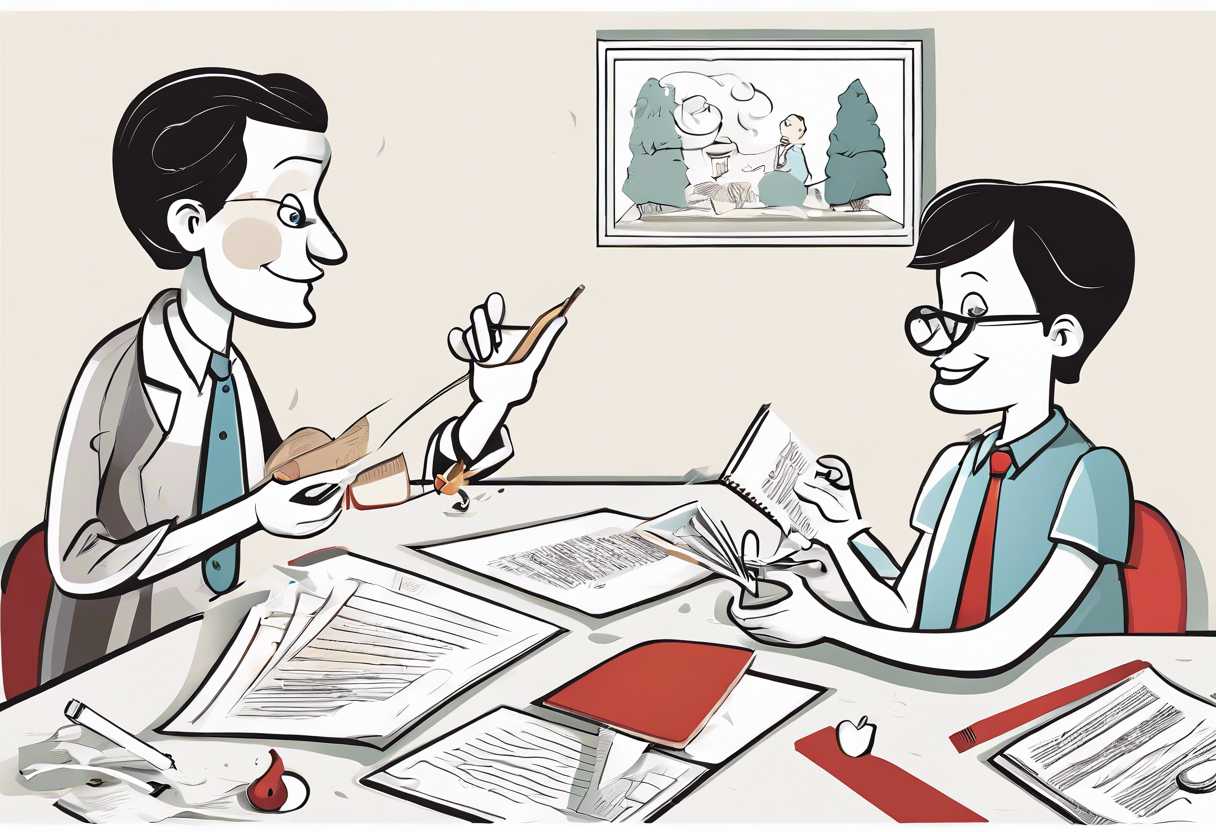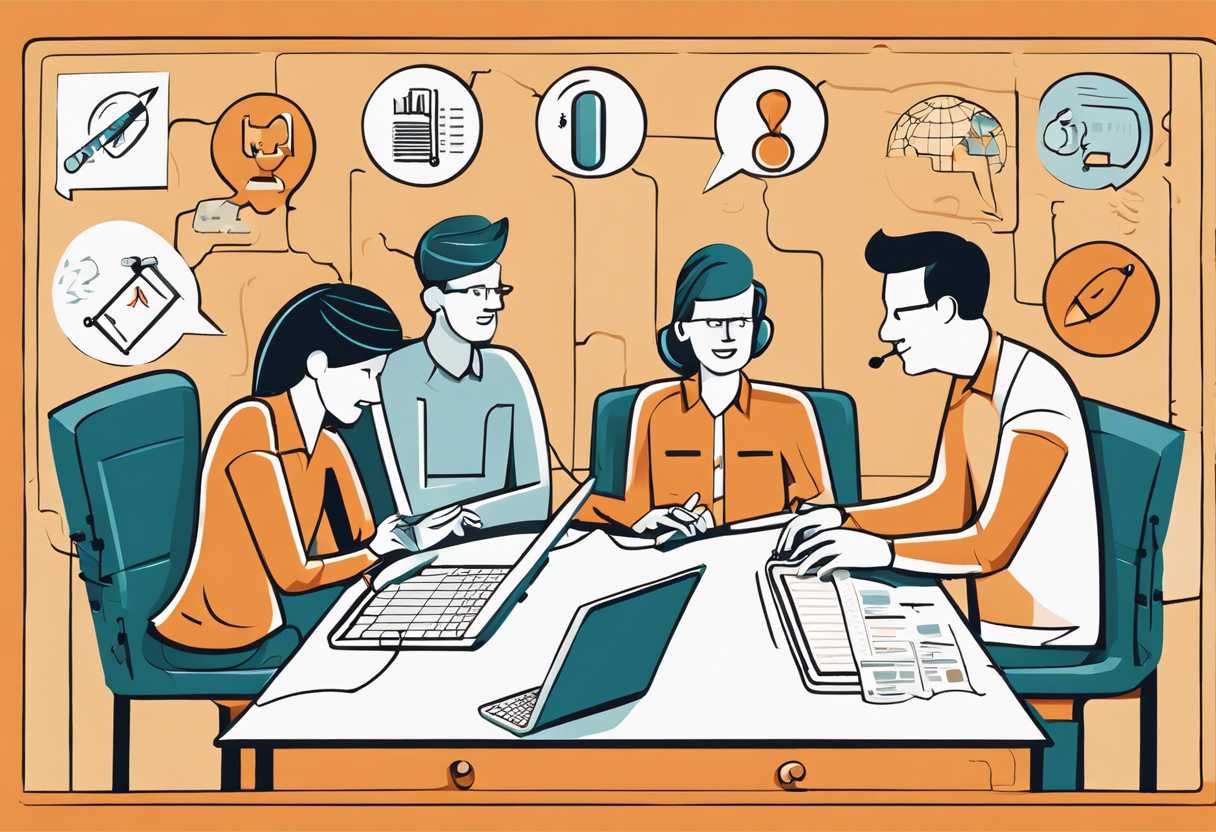Effective team communication is the cornerstone of successful collaboration and productivity in any organization. In order to foster a positive and efficient work environment, it is essential for team members to possess a range of skills that enable them to communicate effectively with one another. From active listening and empathy to conflict resolution and leveraging technology for remote communication, mastering these skills is crucial for the success of any team.
Mastering active listening and empathy is a fundamental skill in team communication. By actively listening to their colleagues and demonstrating empathy, team members can build trust and understanding, leading to more effective collaboration and problem-solving. Developing clear and concise verbal and written communication skills is also essential for ensuring that messages are conveyed accurately and understood by all team members.
Understanding nonverbal communication cues in team settings is another important aspect of effective team communication. Being able to interpret body language and other nonverbal cues can help team members better understand each other’s thoughts and feelings, leading to improved communication and collaboration.
Cultivating conflict resolution and negotiation skills within teams is crucial for addressing and resolving any conflicts or disagreements that may arise. By developing these skills, team members can work through challenges and find mutually beneficial solutions, ultimately strengthening the team’s dynamics.
Finally, leveraging technology for effective remote team communication is becoming increasingly important in today’s digital age. With many teams working remotely, it is essential for team members to be proficient in using various communication tools and platforms to ensure seamless and efficient collaboration.
In this blog post, we will delve deeper into each of these skills, providing practical tips and strategies for mastering effective team communication. Whether you are a team leader or a team member, honing these skills will undoubtedly contribute to the success and productivity of your team.
Mastering Active Listening and Empathy in Team Communication
The Importance of Active Listening in Team Communication
Active listening is a crucial skill in team communication. It involves fully concentrating, understanding, responding, and remembering what is being said. By actively listening, team members can better understand each other’s perspectives, leading to improved collaboration and problem-solving. It also fosters trust and respect within the team, ultimately leading to a more positive and productive work environment.
The Role of Empathy in Team Communication
Empathy is the ability to understand and share the feelings of others. In team communication, empathy plays a vital role in building strong relationships and fostering a supportive and inclusive work culture. When team members demonstrate empathy, they are better able to connect with their colleagues, resolve conflicts, and provide the necessary support during challenging times. This ultimately leads to a more cohesive and high-performing team.
Practical Strategies for Mastering Active Listening and Empathy
- Practice mindfulness to stay present and focused during team discussions.
- Use nonverbal cues, such as nodding and maintaining eye contact, to show that you are actively listening.
- Ask clarifying questions to ensure that you fully understand your colleagues’ perspectives.
- Practice active empathy by putting yourself in your colleagues’ shoes and considering their feelings and experiences.
- Seek feedback from your team members to continuously improve your active listening and empathy skills.

Developing Clear and Concise Verbal and Written Communication Skills
The Importance of Clear Communication
Clear communication is essential in both personal and professional settings. It ensures that messages are understood and prevents misunderstandings. Whether it’s verbal communication in a meeting or written communication in an email, being able to convey information clearly and concisely is a valuable skill.
Practical Tips for Improving Communication Skills
Improving communication skills takes practice and dedication. Here are a few practical tips to help you develop clear and concise verbal and written communication skills:
- Active Listening: Paying attention to the speaker and asking clarifying questions can help improve understanding and prevent miscommunication.
- Organizing Your Thoughts: Before speaking or writing, take a moment to organize your thoughts and structure your message in a logical manner.
- Using Plain Language: Avoid jargon and complex language when communicating. Use simple and clear language to ensure your message is easily understood.
The Impact of Effective Communication in the Workplace
Effective communication in the workplace can lead to increased productivity, better teamwork, and improved relationships with colleagues and clients. According to a study by the International Association of Business Communicators, companies with effective communication practices are 50% more likely to have lower employee turnover rates.
| Benefits of Effective Communication | Percentage Improvement |
| Productivity | 25% |
| Teamwork | 30% |
| Employee Turnover | 50% |

Understanding Nonverbal Communication Cues in Team Settings
The Importance of Nonverbal Communication
Nonverbal communication cues play a crucial role in team settings. They can convey emotions, attitudes, and intentions, often more effectively than verbal communication. Understanding nonverbal cues can help team members interpret each other’s feelings and reactions, leading to better collaboration and productivity.
Types of Nonverbal Communication Cues
Nonverbal communication cues can be categorized into several types, including facial expressions, body language, gestures, eye contact, and tone of voice. Each type of cue can convey different messages and meanings, and being able to interpret them accurately is essential for effective communication within a team.
Improving Nonverbal Communication Skills
Improving nonverbal communication skills in team settings involves being mindful of one’s own nonverbal cues and being attentive to the cues of others. This can be achieved through active listening, practicing empathy, and seeking feedback from team members. Additionally, nonverbal communication workshops and training can be beneficial for enhancing awareness and understanding of nonverbal cues.
Cultivating Conflict Resolution and Negotiation Skills within Teams
Understanding the Importance of Conflict Resolution and Negotiation Skills
Conflict is inevitable within any team, but how it is managed can make all the difference in the team’s success. Cultivating conflict resolution and negotiation skills within teams is crucial for maintaining a positive and productive work environment. These skills allow team members to address and resolve conflicts in a constructive manner, leading to better collaboration, improved relationships, and ultimately, better results.
Developing Effective Communication Strategies
Effective communication is at the core of conflict resolution and negotiation. Team members need to be able to express their thoughts and feelings clearly and respectfully, while also actively listening to others. By developing strong communication skills, teams can prevent misunderstandings, address conflicts early on, and work towards mutually beneficial solutions. *Active listening*, *empathy*, and *assertiveness* are key components of effective communication strategies.
Practicing Collaborative Problem-Solving Techniques
Collaborative problem-solving is essential for successful conflict resolution and negotiation within teams. This approach involves brainstorming, analyzing different perspectives, and finding solutions that satisfy all parties involved. By practicing techniques such as *brainstorming*, *consensus-building*, and *compromise*, teams can work through conflicts in a way that strengthens relationships and fosters a sense of unity.
Leveraging Technology for Effective Remote Team Communication
The Importance of Remote Team Communication
Effective communication is crucial for the success of any team, and this is especially true for remote teams. Without the ability to have face-to-face interactions, remote team members rely heavily on technology to communicate and collaborate. Clear and efficient communication helps to build trust, foster teamwork, and ensure that everyone is on the same page.
Tools for Remote Team Communication
There are numerous tools available to facilitate remote team communication, each with its own unique features and benefits. Video conferencing platforms such as Zoom and Microsoft Teams allow for face-to-face interactions, messaging apps like Slack and Microsoft Teams enable real-time communication, and project management tools such as Trello and Asana help teams stay organized and on track. It’s important to choose the right combination of tools that best suit the needs of your remote team.
Best Practices for Effective Remote Team Communication
When it comes to remote team communication, there are several best practices that can help ensure that communication is clear, efficient, and productive. Setting clear expectations for communication frequency and response times, establishing regular check-ins to keep everyone updated on progress, and encouraging open and transparent communication are all essential for effective remote team communication. Additionally, utilizing collaboration tools to share documents and work on projects together can help streamline communication and improve productivity.
Conclusion
Effective team communication is a critical component of success in any organization. By mastering active listening and empathy, developing clear and concise verbal and written communication skills, understanding nonverbal communication cues, cultivating conflict resolution and negotiation skills, and leveraging technology for effective remote team communication, teams can enhance their overall performance and productivity.
It is essential for team members to actively listen to one another, show empathy, and communicate clearly and concisely to avoid misunderstandings and promote a positive team environment. Understanding nonverbal communication cues and cultivating conflict resolution and negotiation skills can help teams navigate challenging situations and maintain healthy working relationships.
Additionally, leveraging technology for effective remote team communication is crucial in today’s digital age, as it allows teams to collaborate seamlessly regardless of geographical barriers.
As you continue to develop your team communication skills, remember that effective communication is a continuous process that requires ongoing effort and practice. By prioritizing these skills, teams can foster a culture of open communication, trust, and collaboration, ultimately leading to greater success and achievement of organizational goals.
Take the time to invest in honing these skills within your team, and you will undoubtedly see the positive impact on your overall performance and success.
Remember, effective team communication is not just about the words we say, but also about how we listen, understand, and respond. By prioritizing these skills, teams can create a more cohesive and productive work environment, leading to greater success and achievement of organizational goals.

